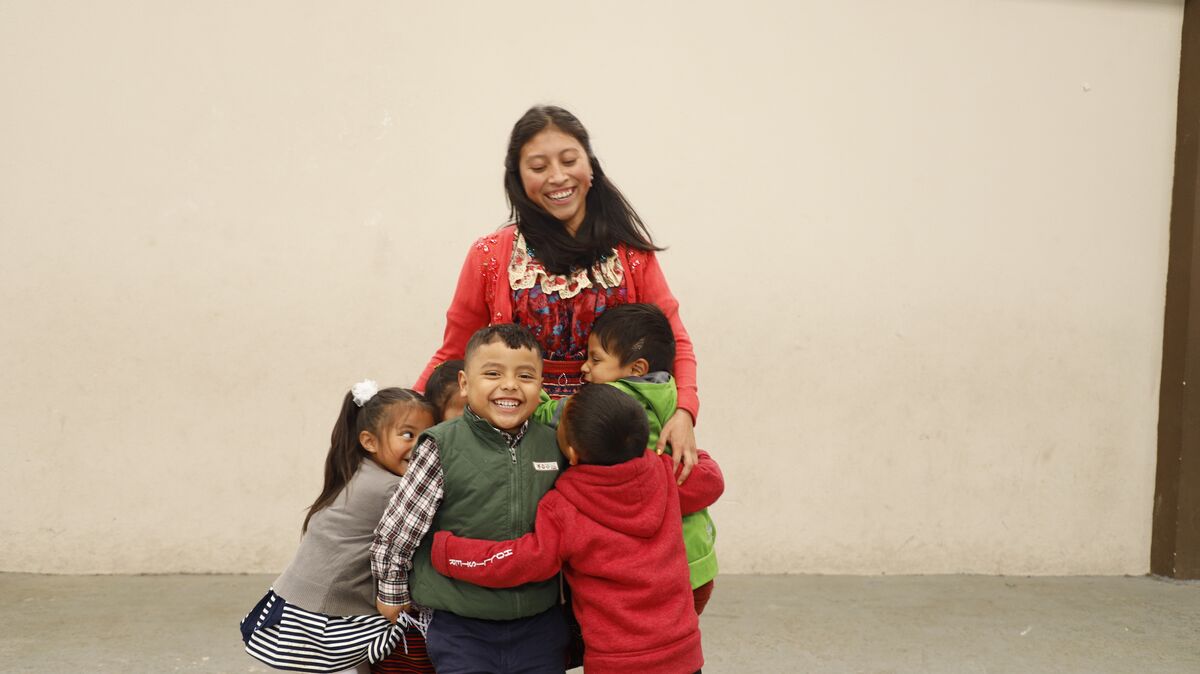Official Country Name: Republic of Guatemala
Capital City: Guatemala City
Population: More than 17.4 million
Official Languages: Spanish
Life expectancy: Male 66 years, female 73 years
Population with access to safe drinking water: 56%
Infant mortality rate: 20 deaths / 1,000 live births
Percentage of children under the age of 5 underweight: 12.4%
Adult literacy rate: Male 88%, female 79%
Religion: Approximately 45% of the population are Roman Catholic, 42% are Protestant, 11% are unaffiliated, and 2% are of another/unspecified religion or none.
Percentage living on less than $2.15 a day: 9.5%
Source: CIA World Factbook, International Religious Freedom Report, released in 2022 by the Office of International Religious Freedom, U.S. Department of State
During the first millennium, the Maya were one of the most highly developed people in the Americas and built a number of cities in what is now Guatemala. However, these were abandoned during the 9th century and by the time Spanish colonists arrived in the 16th century, many cities were in ruin. The Spanish arrived in 1521 and conquered the territory by feigning alliances with Mayan groups and murdering their rivals, only to then turn on them. The settlers enslaved the remaining Mayans, exploiting all profitable resources from the land.
Guatemala gained independence in 1821, but this largely benefited those of Spanish descent and further subjugated indigenous populations whose land was stolen for sugarcane and tobacco plantations. After gaining independence, a small elite group of families and landowners maintained ultimate control, and Mayan conditions continued to deteriorate.
A philosopher named Juan Jose Arevalo was elected in 1945, disrupting the cycle of dictators. He created Guatemala's social security system, liberal labour laws, a modern public health system, and advocated for Mayan rights. The conservative military attempted 25 coups during Arevalo's six-year presidency.
His successor, Jacobo Árbenz Guzmán, attempted further agrarian reforms. The United States intervened in fear of Communism and orchestrated an invasion by the Guatemalan military, exiled in Honduras. The overthrow was successful, and 30 years of military rule followed.
In 1963, a 33-year civil war broke out between guerrilla fighters and the government. During the violence, hundreds of indigenous communities were destroyed. Rios Montt, a Christian President with close ties to the U.S., ordered a scorched earth policy against Mayans from 1982-1983.
By the conclusion of the civil war in 1996, more than 200,000 had been killed or forcibly disappeared, 80% of whom were from indigenous communities. After a peace accord was signed in 1996, Guatemala held its first democratic elections in 2000.
The country is still ravaged by the effects of the civil war, with high inequality and poverty across the country. On 10 May 2013, Ríos Montt was convicted by the court of genocide and crimes against humanity, and was sentenced to 80 years imprisonment.
Art
Guatemalan art includes hand-woven Indian textiles, pottery, clay, and wood carvings.
Music
Music is made with many instruments, including the marimba - a percussion instrument similar to the xylophone - flutes and drums.
Language
Spanish is the official of Guatemala. In addition, there are 22 different Mayan languages as well as indigenous languages Garífuna and Xinca. Spanish: Hola (Hello), ¿Cómo está? (How are you?), Bien (Fine), Sientese.(Please sit down.), ¿Quiere cafecito o un vasito de agua? (Would you like a little cup of coffee or a little glass of water?), ¡Es bien rico! (It is really good!)
Sports and Games
Guatemalans are passionate about football. They also enjoy basketball and cycling. Children enjoy ball games, such as volleyball and dodgeball.
Typical Foods
Guatemalans eat frijoles (black beans), maize (corn), chicken, eggs, white cheese, tamales (a corn-based dough filled with meat and beans), tostadas (a fried corn tortilla, topped with refried beans and other toppings) and hard, rolled tacos with meat. Guatemalans also make a unique array of soups and seed and vegetable sauces.
The typical school year runs from January to October. Education is free and compulsory for the six years of primary school. Some children then move on to secondary school followed by college or university.
Guatemalans' attitudes toward education vary greatly depending on personal experiences. Some parents think girls should not attend school and prepare for motherhood instead; some feel their children should be working to support their families, and others fail to see the importance of education at all.
Of course, many Guatemalans would like to attend school but simply can't afford to cover the costs. Even for wealthier families, the burden of school fees can be significant.
Alongside this, many schools don't have enough facilities, supplies, or even things like desks and chairs for all the children who need them. There are not even schools or teachers in some areas to take the classes.
Approximately 45% of the population are Roman Catholic, 42% are Protestant, 11% are unaffiliated, and 2% are of another/unspecified religion or none.
There is no state religion. However, the constitution recognises the Catholic Church as a distinct legal entity. Any non-Catholic religious groups must register with the Ministry of Government if they are to be exempt from paying taxes.
Freedom of religion is upheld within the constitution, which includes the right for all people to practice their religion in public and private.
Non-Catholic groups do not have to register in order to worship, but they do need to register for legal status if they wish to rent or purchase property or benefit from tax exemptions for properties used for worship, religious education, and social assistance.
The constitution permits but does not require religious education in public schools. There is no national curriculum for religious studies, so the content of classes tends to be worked out on a local level.
There are a number of interfaith organisations that work together to resolve misunderstandings among religious groups and to promote a culture of respect.
Statistics from the International Religious Freedom Report, released in 2022 by the Office of International Religious Freedom, U.S. Department of State
